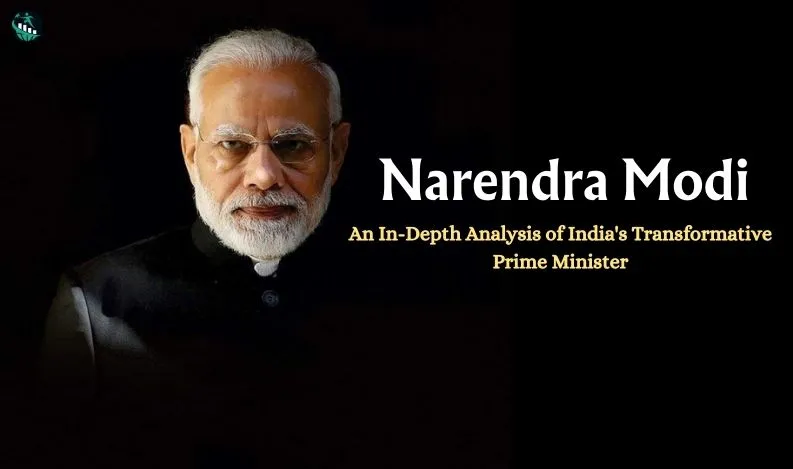
Narendra Modi: An In-Depth Analysis of India's Transformative Prime Minister
Narendra Damodardas Modi, the 14th Prime Minister of India, has been at the helm of the country's significant socio-political and economic transformations since taking office in 2014. Born into a humble family in Vadnagar, Gujarat, Modi's ascent to the pinnacle of Indian politics is a testament to his perseverance, strategic foresight, and a deep-rooted vision for a resurgent India. This comprehensive blog post delves into Modi's life from his formative years, through his rise within the political ranks, to his tenure as Prime Minister, encapsulating the milestones, the initiatives undertaken, the challenges encountered, and the controversies that have sparked debates nationally and internationally.
From Humble Beginnings to Political Stature
Early Life and Ideological Moulding
Narendra Modi's early life in Vadnagar was marked by simplicity and challenges, which imbued him with resilience and a sense of duty towards societal upliftment. His involvement with the Rashtriya Swayamsevak Sangh (RSS) at a young age was pivotal, shaping his ideological framework and instilling a disciplined approach to both life and work. Modi's educational pursuit, culminating in an M.A. in political science from Gujarat University, further enriched his understanding of governance and political science, laying the groundwork for his future in public service.
Ascending the Political Ladder
Modi's foray into mainstream politics began with his entry into the Bharatiya Janata Party (BJP) in 1987, where his exceptional organizational skills and grassroots-level strategies swiftly elevated him within the party ranks. His tenure as the Chief Minister of Gujarat from 2001 to 2014 was marked by transformative governance, focusing on economic growth, infrastructure development, and policy reforms that contributed to what is popularly known as the "Gujarat Model."
Steering India as the Prime Minister
Landmark Economic Reforms and Initiatives
Since assuming office, Modi has championed a series of economic reforms aimed at revitalizing the Indian economy and positioning it as a global powerhouse. The "Make in India" initiative sought to galvanize manufacturing and transform India into a global manufacturing hub, attracting foreign investment and fostering job creation. The implementation of the Goods and Services Tax (GST) represented a significant overhaul of India's complex tax structure, aiming to create a unified market and simplify tax compliance.
Pioneering Digital and Infrastructural Advancements
The "Digital India" initiative, under Modi's leadership, has been pivotal in promoting digital literacy, enhancing internet connectivity, and ensuring government services are available electronically, thereby reducing bureaucratic inefficiencies. Infrastructure development has also been a key focus, with significant investments in roadways, railways, and urban development projects aimed at bolstering economic growth and improving the quality of life for millions of Indians.
Diplomatic Ventures and Global Engagement
Modi's proactive and dynamic foreign policy stance has been instrumental in elevating India's global standing. His personal outreach to world leaders and active participation in international forums have fostered stronger bilateral and multilateral relationships, enhancing trade, defense, and strategic partnerships. His diplomatic efforts have also been geared towards harnessing the Indian diaspora's potential, furthering India's soft power globally.
Controversies and Challenges: A Balanced View
Despite the achievements, Modi's tenure has been mired in controversies and challenges that have sparked intense debate and polarized opinions. The handling of the 2002 Gujarat riots remains a contentious issue, casting a long shadow over his political career. The demonetization initiative in 2016, aimed at curbing black money, faced criticism for its execution and the short-term economic disruptions it caused. The introduction of agricultural reforms in 2020 led to widespread farmer protests, highlighting the complexities of balancing reform with stakeholder interests.
Envisioning the Future: Modi's India
As Narendra Modi continues to lead India, his policies, governance style, and vision for the nation remain under intense scrutiny. Balancing economic ambitions with social inclusivity, addressing environmental concerns, and navigating the geopolitical landscape are critical areas that will define the contours of Modi's legacy. The journey ahead for Modi and India is a confluence of aspirations, challenges, and the relentless pursuit of a place among the global community of developed nations.
In essence, Narendra Modi's journey from the bylanes of Vadnagar to the corridors of power in New Delhi encapsulates the ethos of a changing India — one that is striving to balance its rich cultural heritage with the imperatives of modernization and globalization. His leadership, marked by decisive governance, ambitious development agendas, and a vision for a "New India," continues to shape the nation's trajectory in the 21st century, making his tenure a defining epoch in India's contemporary history.
Also Read:-



Recent Comments: